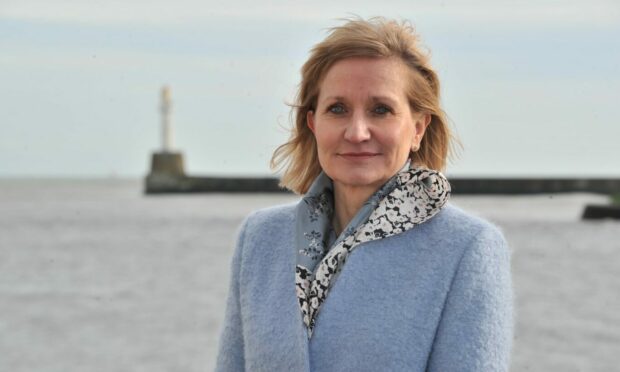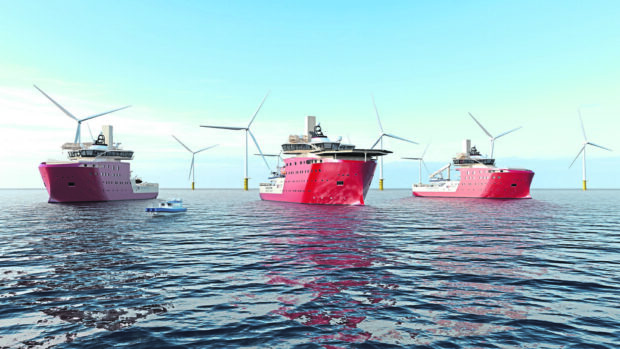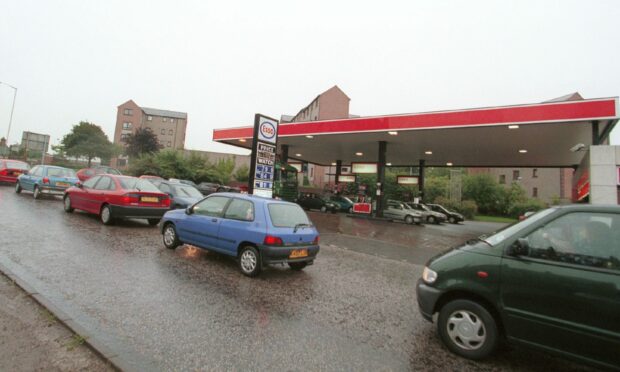For a long time, energy security, affordability and sustainability have been framed as incompatible priorities tussling for the top spot.
The current crisis in Ukraine demonstrates the imperative for governments and policy-makers to deliver all three.
We must rapidly accelerate the UK’s transition to cleaner power and fuel.
To meet the government’s ambitions of 40GW of offshore wind power by 2030, we need to install a new offshore wind turbine every working day for the remainder of this decade.
Hydrogen too, produced with gas and clean power, must come of age.
It will play a powerful role in long distance transport, domestic and industrial heating.
These are solutions which require urgent action to build a secure and clean energy system for the future.
Energy need now
But what about today?
40% of the UK’s gas comes from the North Sea.
The rest is made up from imports provided directly by pipelines from Norway (one third) or through liquefied natural gas (LNG) imported through tankers from countries like Qatar and the USA.
Unlike in Europe, Russian gas accounts for only around 6% of the UK’s imports.
But this is a global market, and just as we’ve seen price shocks reach our shores, it is likely now that supply dynamics in Europe will affect the UK, albeit it on a much lesser scale.
The production of offshore energy is a mammoth task.
Whether it’s oil, wind or gas, all require significant infrastructure and hefty investment.
With planning and regulatory processes which take years, if not decades, there are no quick fixes.
Those who argue that the answer to this problem is to slash oil production risk sacrificing energy security.”
Those who argue that the answer to this problem is to slash oil production risk sacrificing energy security.
Gas remains at the heart of our energy system. Currently, additional demand added to the national grid is met by gas, not wind.
Diversity is security
Meanwhile, those who believe we should abandon the pursuit of cleaner energies and simply scale up fossil fuel production, risk unimaginable consequences for the environment and humanity.
There is security in diversity.
With a mix of cleaner energies at our disposal we can lessen the impact of both price and supply shocks that come with overreliance on any single source.
We can deliver reliable, more affordable energy to millions across the UK and meet the government’s net zero emissions target by 2050.
The UK enjoys a world-renowned offshore energy industry with extensive skills, capabilities and infrastructure – which are already being leveraged by our members for renewable energy projects such as Dogger Bank and Seagreen.
The offshore energy supply chain consists of thousands of companies across the country, ready to play their part in accelerating the production of cleaner, domestic offshore energy.
Neither camp offers right solution
In recent years, loud minority voices have reduced the UK’s energy policy into two simplistic camps. Neither offer attractive solutions.
Oil and gas exploration is at record lows and our increased reliance on imported fossil fuels is all but signed in stone.”
Oil and gas exploration is at record lows and our increased reliance on imported fossil fuels is all but signed in stone.
Many oil and gas companies are already investing heavily in renewables, but there remain significant regulatory hurdles which need to be resolved to enable the scale of investment needed for the roll out of hydrogen and carbon capture and storage.
The crisis in Ukraine cannot be used as an excuse to take our foot off the gas in our transition to cleaner energies.
Reasoned policy making and constructive discussions must now prevail if we are to provide the secure, affordable and cleaner energy that the UK needs.
Deirdre Michie is chief executive of Offshore Energies UK


